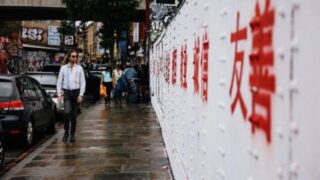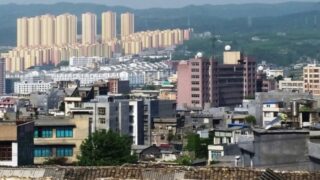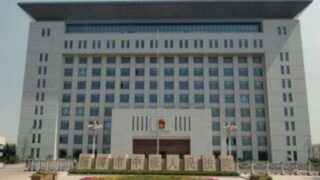Amid pro-democracy protests in Hong Kong, the CCP intensifies efforts to shut down house churches in mainland China under the pretext of “preventing riots.”
by Xin Lu


In support of the pro-democracy movement in Hong Kong, many Christians have also taken to the streets. So, to prevent the spirit of democracy spreading and influencing believers in mainland China, the CCP is exerting tight control over visiting Hongkongers.
On August 11, government officials raided a house church in Dali prefecture in the southwestern province of Yunnan that was built with funding from Hong Kong. Two of the persons in charge of the church are missionaries from Hong Kong, and Hongkongers often attend gatherings at the church.
According to members of the congregation, about 30 officials from the Public Security Bureau and the Ethnic and Religious Affairs Bureau stormed into the venue, registered the ID information and cellphone numbers of all believers; ten of them were Hong Kong residents, and they had their photographs taken. All of the church’s Bibles and hymnbooks were confiscated.
Referring to the pro-democracy protests, the police claimed that this is a “special period” in Hong Kong now, and registration is required if ten or more residents of the special administrative region gather in mainland China.
The police took three people in charge of the church – the two from Hong Kong and one local – to the police station, took away their cellphones, and interrogated each of them separately.
Congregation members reported that the police ordered the two Hongkongers not to organize any more gatherings, or else they will be deported back home, and demanded them to cancel the church’s profile on the WeChat messaging platform and disband the Bible study group that they used for maintaining contact with other believers.
After the incident, the local person in charge of the church has been repeatedly questioned by the police about the church’s finances. In early September, she was arrested again and detained for half a month. The same month, the two persons in charge of the church from Hong Kong had to return home.
“If they stayed here, they might be punished even more severely,” said one of the congregants.
Officials from the local Ethnic and Religious Affairs Bureau also pressured the meeting venue’s landlord to stop renting the property to the church. As a result, believers cannot hold gatherings there anymore.
“Those people at the top, the CCP leaders, want to be emperors and make people obediently serve as their slaves and obey them,” a believer commented, angry about how the government treated the church.
To prevent the pro-democracy movement in Hong Kong from impacting residents in mainland China, the CCP is intensifying control over groups that it considers “unstable,” people of faith bearing the brunt. When cracking down on house churches, government officials in some localities claimed that doing so was to prevent the “Hong Kong riots” from having an uncontrollable influence.
At 7 a.m. on September 8, a house church meeting venue in a village in Zhangwang town, administered by Tengzhou city in the eastern province of Shandong, was raided. Town government officials ordered believers to cease their gatherings because there are now “riots” in Hong Kong, and the situation is “tense.” The officials also registered the believers’ ID information and threatened to dismiss the village’s Party secretary and the village head if gatherings at the venue are not stopped.
Shortly after 10 a.m. that morning, officials arrived at the venue again and hastened believers to leave, telling them that even gatherings of two or three people aren’t allowed; if any further meetings are held, they will be detained.
An official from the government of Rushankou town under the jurisdiction of Shandong’s Rushan city revealed that in August, a meeting was organized by higher level of government, during which local officials were ordered to intensify their efforts in shutting down house churches to prevent “bad people from making trouble” because of the “rioting” in Hong Kong.









